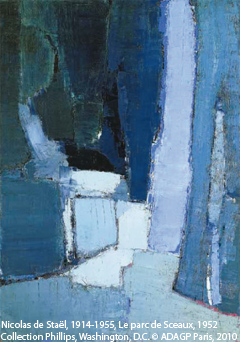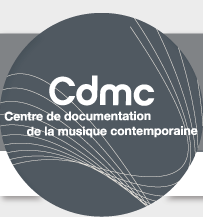You are here
The Cdmc holds a unique collection representing all aesthetics within musical creation. This collection has grown thanks to the collaboration of composers, publishers and Radio France. With a consultation area open to the public, the centre also affords access to many online resources through the Catalogue and the Gateway to Contemporary Music. A beacon of the latest music news with its website, the Cdmc organises encounters with the movers and shakers of contemporary music.
The Cdmc presents a season of encounters, seminars and day study sessions designed to counterpoint the views of specialists and professionals and to spotlight composers and performers. Focussing on topical aspects of the music scene, they are organised in collaboration with the main players of musical creation: ensembles, centres for creation, festivals, etc., as well as with those involved in research, the universities and conservatories. Dédicaces (Dedications): these are encounters featuring newly released books, discs or DVDs.
Horizons of music in France 1944-1954

Coordination Laurent Feneyrou, François Meïmoun et Alain Poirier
Over the past ten years or so a few major studies (seminars, publications) have dealt with musical life under the Vichy regime (La Vie musicale sous Vichy, edited by Myriam Chimènes, Paris, Complexe, 2001). Similarly, there has been some research into French musical creation in the mid fifties – Jésus Aguila’s thesis Le Domaine musical: Pierre Boulez et vingt ans de création contemporaine (Paris, Fayard, 1992) is one of the principal milestones. Now that these two areas of investigation have been put on the map, it is the history of musical life in the immediate post-war period that remains to be written.
The seminar ‘Horizons of music in France 1944-1954’ is framed by the publication, in 1944, of Olivier Messiaen’s Technique de mon langage musical and the first performances, in January 1954, of the Concerts du Petit-Marigny (to become the concerts of the Domaine Musical the following season).
This seminar will therefore focus on studying certain problems apparent in the musical landscape that emerged after the Liberation. What are the relationships between official modernity (the Groupe des Six in the interwar period, the Groupe Jeune France), and the new generations of composers, brought up in the teachings of Messiaen and Leibowitz? Also, both at the official institutions and in private tuition, what are the methods of teaching composition, and how are they received by the pupils?
What are, for post-war musicians, the venues for concerts and other forms of musical expression (concert societies, incidental and film music)? What are the new grammars of composition? On the fringes of the official musical world, which personalities, for the new creative artistes, contributed to this awareness of being a group apart?
These are some of the issues that will enable a better understanding of a crucial period in modern musical history, one that saw the laying of the æsthetic and intellectual foundations upon which our era still in part lives today.
Entrée libre, réservation 01 47 15 49 86








